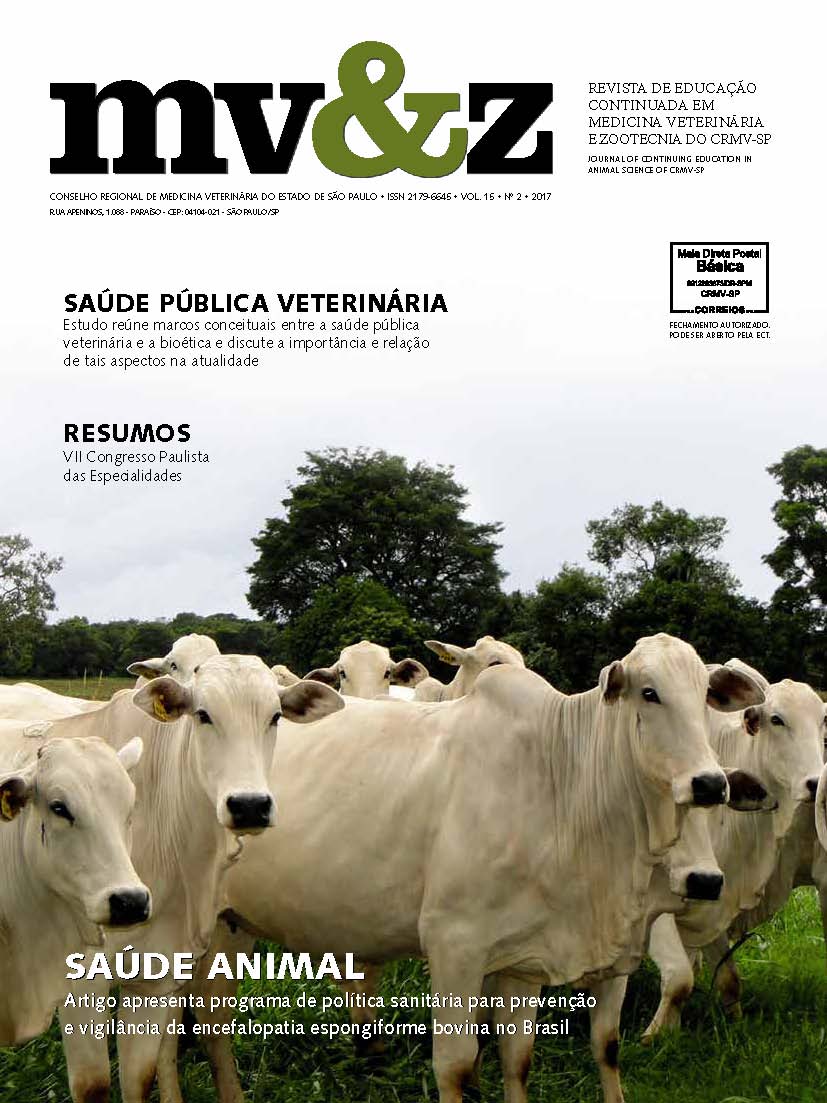Sanitary policy for the prevention and surveillance of bovine spongiform encephalopathy in Brazil
Main Article Content
Abstract
The Programa Nacional de Prevenção e Vigilância da Encefalopatia Espongiforme Bovina (PNEEB) was established by the Brazilian Normative Instruction nº 44, on September 17th, 2013. Previously, the health policy was part of the Programa Nacional de Controle da Raiva dos Herbívoros. Since 1990, BSE preventive actions have been established and constantly improved. The main objectives of this program are: to prevent the entrance of BSE agent into the national territory; to apply risk mitigation measures to avoid possible recycling and diffusion of the BSE agent in the country and maintain a surveillance system for the detection of infected animals. The preventive health measures are in line with the World Organisation for Animal Health (OIE) recommendations, which examines the risk management for BSE occurrence, and currently have classified Brazil into the insignificant risk category, demonstrating the effectiveness of ongoing measures. The involvement of all sectors, public (federal, state and municipal) and private ones (rural producers, agricultural professionals, research and teaching institutions, among others), is decisive to prevent the BSE. This article details the guidelines of the Programa Nacional de Prevenção e Vigilância da Encefalopatia Espongiforme Bovina (PNEEB), highlighting the main legislation and actions in São Paulo, and explains the importance of preventive measures and the effectiveness of the participation of health professionals.
Article Details
1. Autores mantém os direitos autorais e concedem à revista o direito de primeira publicação, com o trabalho licenciado sob a Creative Commons Atribuição-NãoComercial-SemDerivações 4.0 Internacional
2. Autores têm autorização para assumir contratos adicionais separadamente, para distribuição não-exclusica da versão do trabalho publicada nesta revista (ex.: publicar em repositório institucional ou como capítulo de livro), com reconhecimento de autoria e publicação inicial nesta revista.
3. Autores têm permissão e são estimulados a publicar e distribuir seu trabalho online (ex.: em repositórios instituicionais ou na sua página pessoal) a qualquer ponto antes ou durante o processo editorial, já que isso pode gerar alterações produtivas, bem como aumentar o impacto e a citação do trabalho publicado (Veja O Efeito do Acesso Livre);
